In the Bondage and Liberation of the Will, Calvin claimed full agreement with Luther's doctrine of the unfree will and divine necessity. Some scholars argue however that Calvin was trying to create the appearance of unity and was embarrassed by Luther's teaching. They have also denied any substantial influence from Luther. Others argue that the Reformers discontinued their teaching on necessity in the face of criticism. Matthew Heckel defends Calvin´s claim to unity with Luther and that Luther had a formative influence on Calvin. The latter can be seen in the fact that Calvin followed uniquely Lutheran contributions like the denial of free choice as a misleading term, free choice only in what is under human dominion, contingency defined as chance, divine omnipotence as the actuating force of divine necessity, and the distinctions between the hidden and revealed God and law and gospel. Despite what some interpreters have said, both Reformers affirmed necessity because of sin and divine sovereignty throughout their careers. Though the Reformers believed in divine necessity, they were careful to say that God was not the author of sin either before or after the fall of humankind. While Luther and Calvin agreed on necessity imposed by sin and divine sovereignty, they affirmed that the human will is always voluntary and thus responsible for its actions. Concerning predestination, they taught its double nature respecting the elect and the reprobate, while consoling believers by pointing them to grace alone in Christ–the revealed God–and God's preservation of the elect. Differences between the Reformers are noted but true solidarity existed on the will.

Melanchthon und die Reformierte Tradition
book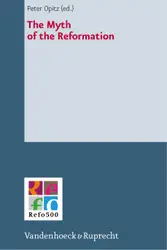
The Myth of the Reformation
book
Calvin and Luther: The Continuing Relationship
book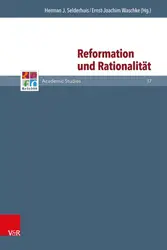
Reformation und Rationalität
book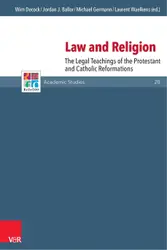
Law and Religion : The Legal Teachings of the Protestant and Catholic Reformations
book
Die Präsenz Christi im Amt : Am Beispiel ausgewählter Predigten Martin Luthers, 1535–1546
Jonathan Mumme
book
Preparing for Death, Remembering the Dead
book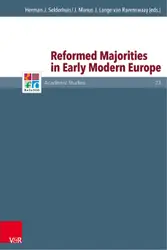
Reformed Majorities in Early Modern Europe
book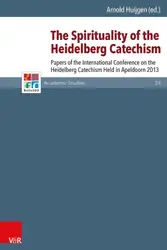
The Spirituality of the Heidelberg Catechism : Papers of the International Conference on the Heidelberg Catechism Held in Apeldoorn 2013
book
Latomus and Luther : The Debate: Is every Good Deed a Sin?
Anna Vind
book
Underground Protestantism in Sixteenth Century Spain : A Much Ignored Side of Spanish History
Frances Luttikhuizen
book
Lutheran Theology and the shaping of society: The Danish Monarchy as Example : The Danish Monarchy as Example
book

